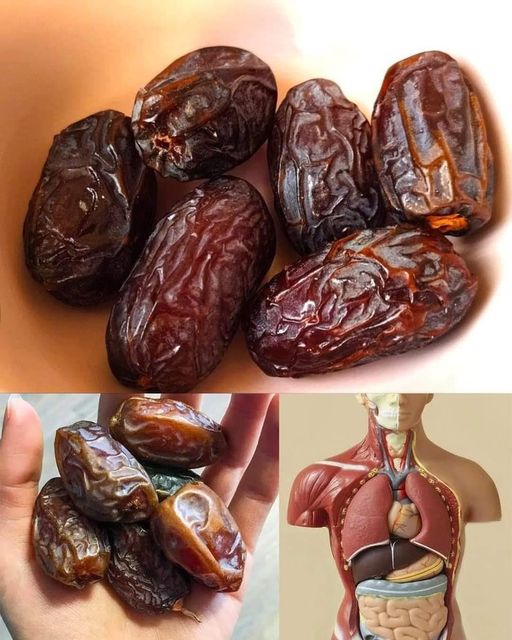One of the main reasons dates hold such high regard in the world of nutrition is due to their impressive profile of essential nutrients. These small, sweet fruits, often categorized as a superfood, provide a unique combination of vitamins, minerals, and beneficial compounds that make them a fantastic addition to any diet. Dates, which grow on the date palm tree primarily in the Middle East and North Africa, have been enjoyed for centuries and are known for their versatility, energy-boosting qualities, and delicious taste.

Nutritional Benefits of Dates
Dates are packed with a wide array of key nutrients essential for maintaining overall health. Some of the most notable nutrients in dates include:
- Magnesium: Known for its role in supporting muscle and nerve function, magnesium is crucial for energy production. A diet with adequate magnesium helps regulate blood pressure, improves bone health, and supports a healthy immune system.
- Potassium: This mineral is vital for heart health, as it assists in maintaining proper muscle contractions and nerve functions. Potassium also plays a critical role in balancing fluids in the body and reducing blood pressure.
- Calcium: Dates provide calcium, a mineral essential for bone health and dental strength. Calcium also helps in blood clotting and is involved in muscle contractions and nerve signaling.
- Manganese: Often overlooked, manganese is essential for bone formation, blood clotting, and reducing inflammation. This mineral also helps the body in processing cholesterol and carbohydrates.
- Iron: As a key component of hemoglobin, iron supports red blood cell production and helps transport oxygen throughout the body. For those at risk of iron deficiency, dates can serve as a natural and tasty way to increase iron intake.
- Phosphorus: Phosphorus is another mineral that supports bone health, works with calcium to strengthen bones and teeth, and aids in filtering waste in the kidneys.
- Vitamin A: Important for eye health, vitamin A also supports immune function and cell growth. It is known for promoting healthy skin and mucous membranes, which are the body’s first line of defense against infection.
Fiber Content for Digestive Health
Beyond these minerals and vitamins, dates are an excellent source of natural fiber, which is essential for digestive health. Dietary fiber, present in generous amounts in dates, helps promote regular bowel movements, which can prevent constipation and keep the digestive tract functioning smoothly. Fiber also supports a balanced gut microbiome, which has been linked to various health benefits, including improved immunity and better nutrient absorption. Consuming fiber-rich foods like dates can help people feel full for longer periods, making them a great choice for those looking to manage their weight or avoid unhealthy snacking.
Energy-Dense and Low in Fat
Dates stand out as a low-fat food that provides a balanced mix of natural sugars, protein, and fiber, making them ideal for those seeking to enhance their energy levels naturally. A 100-gram serving of dates contains around 280 calories, which makes them quite energy-dense. This quality is especially beneficial for people with active lifestyles, athletes, or anyone needing a quick energy boost without reaching for sugary snacks. Although dates are sweet, they contain natural sugars like glucose, fructose, and sucrose that provide quick energy while still being a healthier alternative to refined sugar.
Antioxidants: Protection Against Chronic Disease
One of the lesser-known, but perhaps most powerful benefits of dates lies in their rich antioxidant content. Antioxidants are compounds that protect the body against damage caused by free radicals, which are unstable molecules that can lead to cellular damage, inflammation, and chronic diseases over time. Dates are particularly rich in three potent antioxidants:
- Flavonoids: These antioxidants are known for their anti-inflammatory properties and may help lower the risk of certain diseases such as diabetes, Alzheimer’s, and heart disease.
- Carotenoids: Carotenoids, often found in brightly colored fruits and vegetables, are known to support eye health and may reduce the risk of age-related eye disorders.
- Phenolic Acid: Known for its anti-inflammatory properties, phenolic acid has been shown to potentially reduce the risk of cancer and heart disease.
By incorporating dates into your diet, you are not only benefiting from their nutrient content but also from these antioxidants that provide a natural line of defense against various forms of oxidative stress and inflammation.
How to Enjoy Dates in Your Diet
With their natural sweetness and chewy texture, dates are a versatile ingredient that can be incorporated into a variety of meals and snacks. Here are some ideas:
- Energy Bites: Blend dates with nuts and seeds for a quick, nutritious snack that satisfies hunger and provides a boost of energy.
- Smoothies: Add a couple of dates to your smoothie for natural sweetness without the need for added sugar.
- Baking Substitute: Dates can be used as a natural sweetener in baked goods, replacing refined sugars and adding more fiber to treats like cookies or muffins.
- Stuffed Dates: A popular option is to stuff dates with almond butter, cream cheese, or even a piece of dark chocolate for a delicious and satisfying snack.
Conclusion: Small Fruit with Big Benefits
Incorporating dates into your daily routine can offer various health benefits, from increased energy and improved digestive health to antioxidant protection. Their unique nutritional profile makes them a valuable addition to a balanced diet, particularly for those looking to reduce their intake of processed sugars, boost their mineral intake, or simply enjoy a naturally sweet treat that doesn’t compromise health.
Whether you enjoy them on their own, blended into recipes, or as part of a nutritious snack, dates can add a valuable source of energy, nutrition, and flavor to your day.





